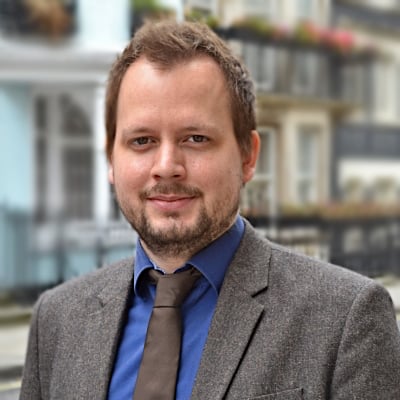Customer Logins
Obtain the data you need to make the most informed decisions by accessing our extensive portfolio of information, analytics, and expertise. Sign in to the product or service center of your choice.
Customer Logins
BLOG
Jul 11, 2019
New institutional cycle for the EU
On 2 July, the European Council, representing the EU member states, agreed on the nominations of German Defense Minister Ursula von der Leyen as president of the European Commission, French chair of the IMF Christine Lagarde as president of the European Central Bank, interim Belgian Prime Minister Charles Michel as Council president, and Spanish Foreign Minister Josep Borrell as EU High Representative for Foreign and Security Policy. These nominations follow the European Parliament elections that were held between 23 and 26 May.
The European Council's nominees are likely to face opposition in the European Parliament during the upcoming ratification process in mid-July. This stems from disagreement over the procedural requirements for the selection of new EU leaders. The Parliament supported the so-called "Spitzenkandidaten" mechanism whereby the top candidate from the group of political parties that won the most seats in the European Parliament elections is considered the first choice to lead the Commission. The Council, however, was still allowed to select different candidates instead. Simultaneously, the Parliament ignored the Council's recommendation for the position of president of the Parliament and elected Italian MEP David Maria Sassoli.
Disagreement between the Council and Parliament over the nomination of new EU leaders indicates an increased likelihood of inter-institutional disputes, slowing down policy-making in the upcoming term. Should the Parliament reject the Council's choices for senior EU positions, it would make a smooth transition to the new five-year institutional cycle more unlikely and raise the likelihood of disagreements over key policies. The Parliament is likely to make frequent substantial amendments to proposals tabled by the Commission. The Parliament has a joint legislative role along with the Council on immigration, environmental, energy, transport, and consumer protection policies and approves the EU budget proposed by the Commission. It has a limited consultative role in other areas, particularly with regards to the European Union's common foreign and defense policy. Fragmentation in the Parliament is likely to particularly affect the implementation of climate-friendly policies, stricter banking supervision, anti-money-laundering regulations, and efforts to combat tax evasion at the EU level.
France and Germany are likely to continue dominating the Council in multiple policy areas, with Spain potentially stepping up as a key intermediary, while power imbalances continue to affect relations between core and periphery countries such as the Visegrád Four. Spain's role at the EU level is likely to become more important while its southern competitor Italy is ruled by an internally divided anti-EU government. In the context of Brexit, Spain is also likely to try to fill the unofficial former role of the UK as mediator between France and Germany at a time when French President Emmanuel Macron and German Chancellor Angela Merkel are increasingly diverging in policy direction. The Netherlands is also likely to increase its influence, while the Nordic countries of Sweden and Denmark are likely to further lead on the EU's highly important trade, competition, and corporate taxation policies. It is likely that current disputes between countries or groups of countries will persist, particularly between the EU's top level and the "Visegrád Four" of Czechia, Hungary, Poland, and Slovakia. The latter's largely Eurosceptic governments supported the nomination of Von der Leyen and Michel, but both candidates are socially liberal politicians in favor of strong European integration who have severely criticized the Visegrád Four on numerous occasions. The Council's decision-making is likely to suffer occasionally because of the presence of blocking minorities, but under-represented Eastern European member states are unlikely to build a stable homogeneous block to oppose proposals tabled by countries such as France, Germany, and the Netherlands like those concerning the rule of law and climate-friendly policies.
Indicators of changing risk environment
Increasing risk
- Domestic political disputes at a member-state level, for instance within the German coalition government, having a spillover effect at the EU level would exacerbate inter-institutional conflicts.
- Rejection by the Parliament of the Council's candidates would be likely to lead to a prolonged process of reselection that would probably take several months to resolve and extend the EU's legislative process for at least six months.
Decreasing risk
- Should support for Von der Leyen increase, particularly within the center-left social-democratic group in the Parliament, it would be more likely that the current nominees would be accepted as a whole.
- If countries such as Poland, Italy, and France were given the Commissioner portfolios that they aim to obtain, this would increase the likelihood that the MEPs from these countries would support Von der Leyen's nomination.
- If there was closer alignment between Renew Europe (RE) and the European People's Party (EPP), this would reduce the fluidity of the majority in the Parliament and ease the adoption of EU-wide legislation.
{"items" : [
{"name":"share","enabled":true,"desc":"<strong>Share</strong>","mobdesc":"Share","options":[ {"name":"facebook","url":"https://www.facebook.com/sharer.php?u=http%3a%2f%2fprod.azure.ihsmarkit.com%2fmarketintelligence%2fen%2fmi%2fresearch-analysis%2fnew-institutional-cycle-for-the-eu.html","enabled":true},{"name":"twitter","url":"https://twitter.com/intent/tweet?url=http%3a%2f%2fprod.azure.ihsmarkit.com%2fmarketintelligence%2fen%2fmi%2fresearch-analysis%2fnew-institutional-cycle-for-the-eu.html&text=New+institutional+cycle+for+the+EU+%7c+S%26P+Global+","enabled":true},{"name":"linkedin","url":"https://www.linkedin.com/sharing/share-offsite/?url=http%3a%2f%2fprod.azure.ihsmarkit.com%2fmarketintelligence%2fen%2fmi%2fresearch-analysis%2fnew-institutional-cycle-for-the-eu.html","enabled":true},{"name":"email","url":"?subject=New institutional cycle for the EU | S&P Global &body=http%3a%2f%2fprod.azure.ihsmarkit.com%2fmarketintelligence%2fen%2fmi%2fresearch-analysis%2fnew-institutional-cycle-for-the-eu.html","enabled":true},{"name":"whatsapp","url":"https://api.whatsapp.com/send?text=New+institutional+cycle+for+the+EU+%7c+S%26P+Global+ http%3a%2f%2fprod.azure.ihsmarkit.com%2fmarketintelligence%2fen%2fmi%2fresearch-analysis%2fnew-institutional-cycle-for-the-eu.html","enabled":true}]}, {"name":"rtt","enabled":true,"mobdesc":"Top"}
]}





